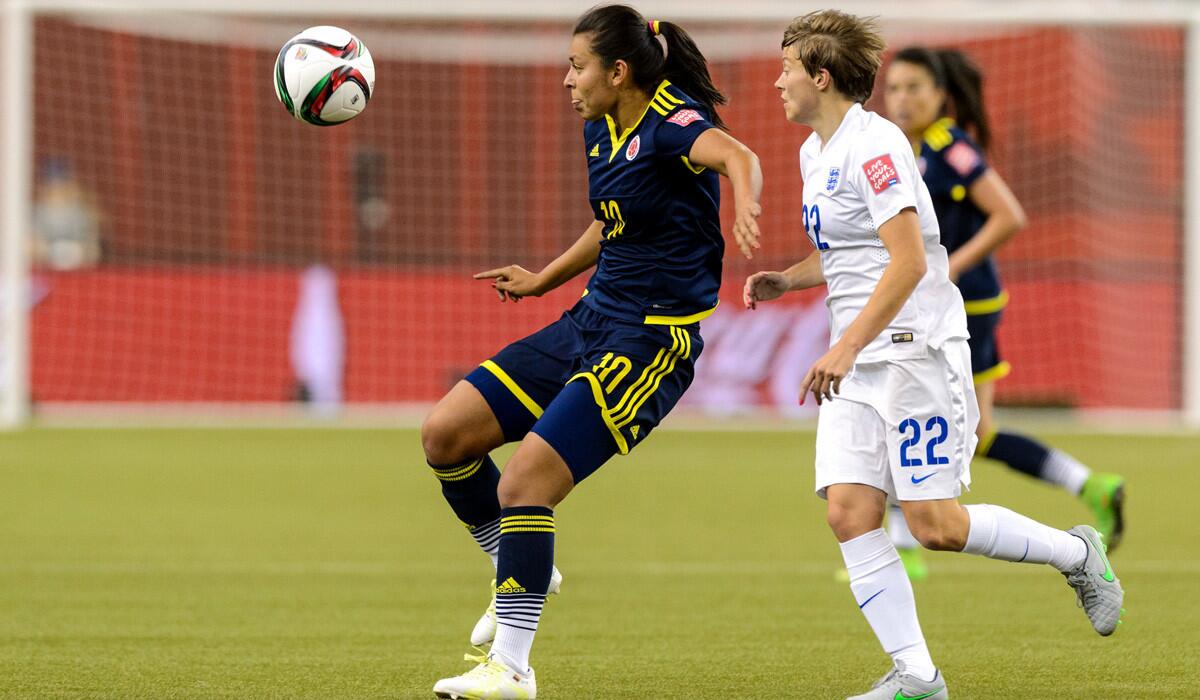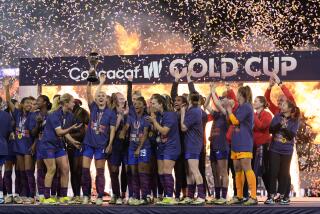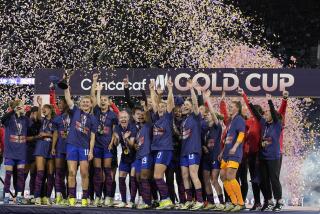Colombia is fueled by success over France as it gets ready for U.S.

Coumbia’s Yoreli Rincon and England’s Fran Kirby chase the ball during a FIFA Women’s World Cup match on June 17.
For Colombia, Monday’s second-round Women’s World Cup game against the U.S. is shaping up as more of a grudge match than a soccer match.
And for the South Americans, it’s a rivalry that’s been years in the making, dating to the 2012 Olympics, when Colombia’s Lady Andrade punched American Abby Wambach in the eye, earning a two-game suspension.
The next day, Wambach posted pictures of her shiner on social media, and the Colombians have been stewing ever since.
“What happened is that following that episode, and because of something that happened three years ago, they said things that were not taken by us in the best way,” midfielder Yoreli Rincon said Sunday.
Last week, Andrade stirred things up again, accusing the U.S. of belittling her team and predicting that the Colombians would earn their respect by beating the second-ranked Americans in Monday’s elimination game.
That’s no idle threat: Earlier in the tournament, the South Americans shocked third-ranked France, 2-0.
“There is no such thing as small enemies,” Colombian Coach Fabian Taborda said. “Those that you never expect are the ones that will kill you.”
The U.S. has refused to return fire in the war of words, with midfielder Megan Rapinoe professing undying respect for Colombia and Wambach insisting she’s a “person that doesn’t focus on things that happened three years ago” — which was kind of a dig in itself.
Colombia is clearly relishing the feud.
“We don’t have much to lose, but we have a lot to gain,” Rincon said.
“We know how they play. They are clearly tall and athletic, but they don’t have the heart the Colombians do.”
Added goalkeeper Catalina Perez: “Our dreams are bigger than our fears.”
And those dreams have been growing since the first-round upset of France.
“That helped a lot,” Perez said. “We knew we could do it. And when everything played out, it was like, ‘We can make history, we are making history.’ Why stop now? We feel like we have more support at home.”
Colombia may be emerging as a global soccer power. Its men’s team advanced to the quarterfinals of the prestigious Copa America on Sunday, a year after making a run to the quarterfinals of the men’s World Cup, where it won more games (4) in three weeks than it had won in the 13 previous World Cups combined.
Now its women’s team stands among the final 16 at its World Cup, making Colombia just the third country from the Americas — behind the U.S. and Brazil — to make it to the knockout round of both the men’s and women’s World Cup.
Perez, who was born in Bogota but raised in Boca Raton, Fla., said that success is having a profound effect back home, where Taborda estimated there are no more than 5,000 girls and women playing soccer. (Because there is no professional league for women in Colombia, 17 members of the national team play club soccer, working day jobs to pay the rent.)
“We could be the generation that really makes soccer acceptable and brings a lot of opportunities to Colombian girls,” said Perez, 20, a junior at the University of Miami.
Against the U.S., the Colombian women will need to exceed expectations once again, because starting goalkeeper Sandra Sepulveda is ineligible after drawing her second yellow card in the waning moment of the final group-play game against England.
Perez thinks they’re up to the challenge.
“Why set limits on what we can do?” Perez said. “We can’t control outcomes, but we can control our attitude and how we go into the game.”







